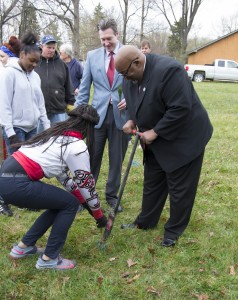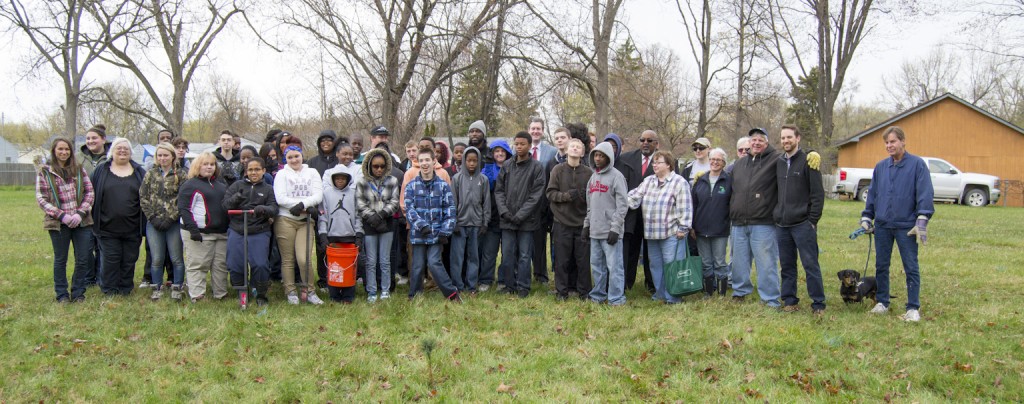By Nic Custer
As part of efforts to expand the reach of the Innovation Incubator, staff has taken the business training out into the community. Two business bootcamps have been recently offered to community members and students. 5 Steps to Start Up, a Procurement Technical Assistance Center-funded series, was held on UM-Flint’s campus and helped more than sixty business owners better understand customer acquisition, marketing, business finances and government contracting.
[IN] on the Road, another workshop series, offers multiple free business bootcamps on the north and east sides of Flint. This program’s goal is to build up entrepreneurship knowledge in neighborhood residents. The Innovation Incubator-led project is funded by Ruth Mott Foundation. Each 5-session bootcamp is geared towards both teens and adults.The curriculum brings financial literacy and entrepreneurship skills to the general community, which may have barriers to access traditional business planning services downtown. The program was held at Joy Tabernacle in Civic Park, Holmes STEM Academy and will be at Asbury United Methodist Church this June. An additional bootcamp exclusively for teens was held at Boys and Girls Club of Greater Flint during spring break, funded by Michigan Small Business Development Center. Business counselors make themselves available to community members an hour before and after each session for 1-on-1 counseling. The program will culminate June 24 with a graduation celebration at Berston Field House. Participants will receive certificates of completion and young people will compete in an elevator pitch competition with up to 10 of them winning $500 towards starting the business. The Innovation Incubator hopes to work with clients beyond the life of the camp and is offering bus passes to clients without access to reliable transportation to help them attain services downtown after June.
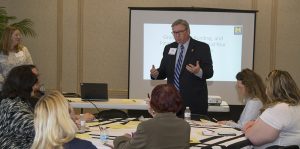
Larry Nichols of the School of Management and Sara McDonnell of the Innovation Incubator present “Grants, Crowdfunding, and Financing: How to Fund your work and business”
Additionally, Outreach held an Arts and Social Entrepreneurship Symposium at the Flint Institute of Music and Flint Institute of Arts in March. This event brought together local arts entrepreneurs for a day of workshops and panel discussions. Keynote speakers included local printmaker Bill Stolpin and Aaron Dworkin, Sphinx Organization founder and dean of the U-M School of Music, Theatre, and Dance.
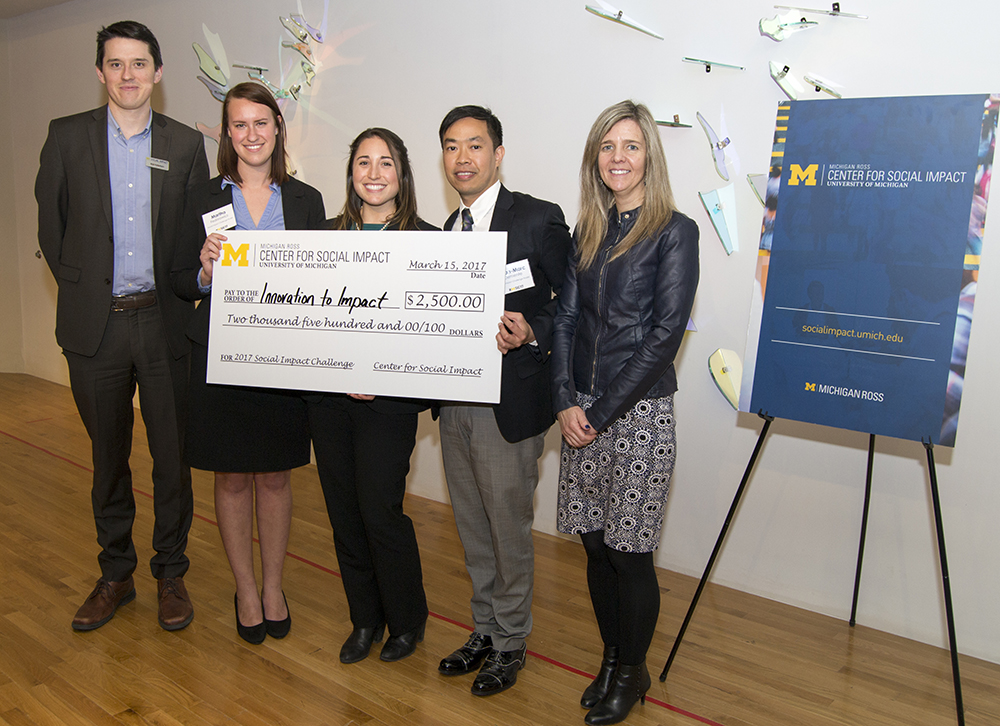
Matt Kelterborn of the U-M Center for Social Impact and University Outreach Director Paula Nas with Martha Fedorowitz, Emily Futcher, Dean-Mark Clemente, the 2017 Social Impact Challenge grand prize winners.
The Social Impact Challenge finals were held at the symposium and mixed teams from Flint and Ann Arbor presented their ideas of how to better connect IN on the Road’s neighborhood entrepreneurs with a new Ferris Wheel innovation hub downtown. The $2,500 grand prize was awarded to student team, Innovation to Impact.
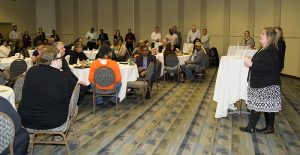

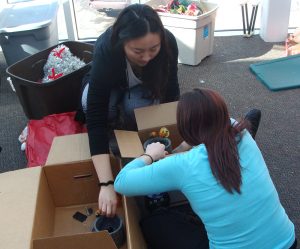
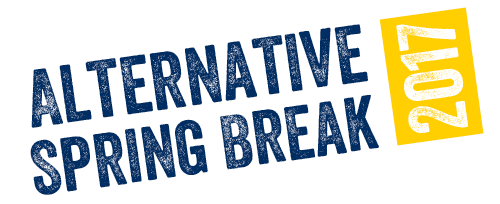
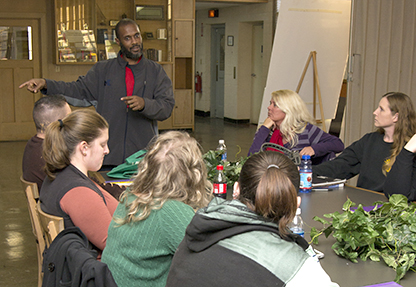
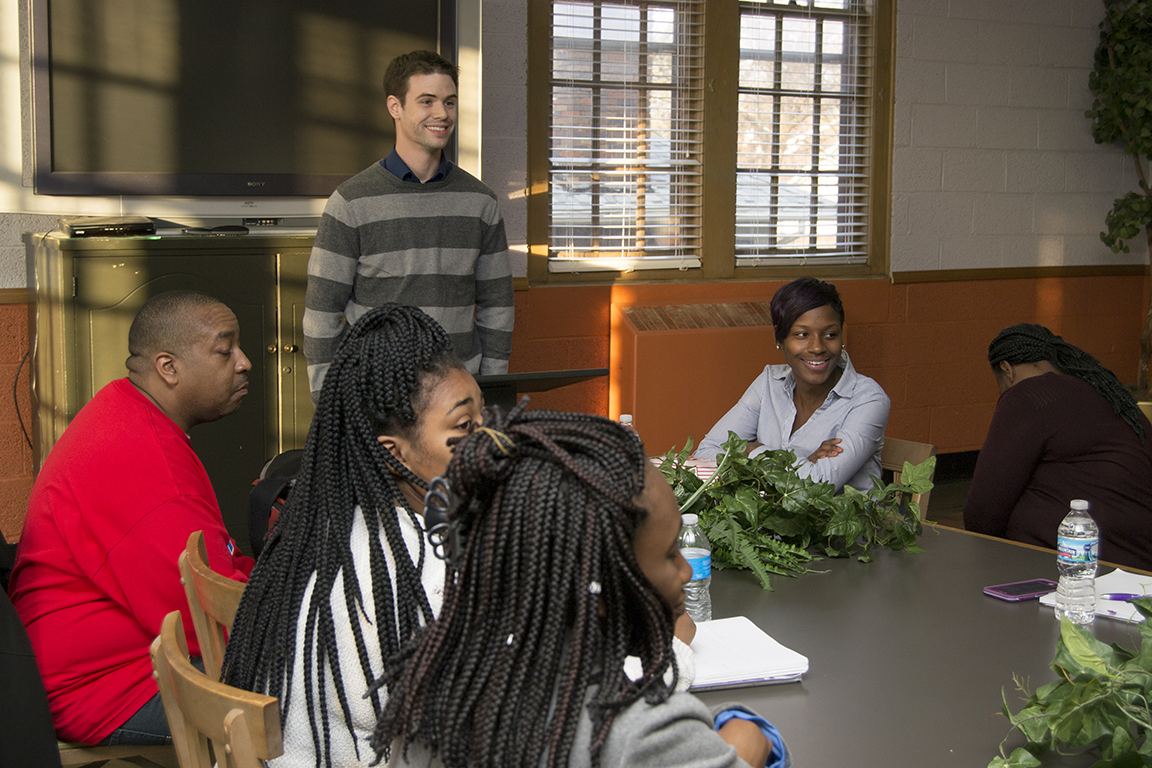
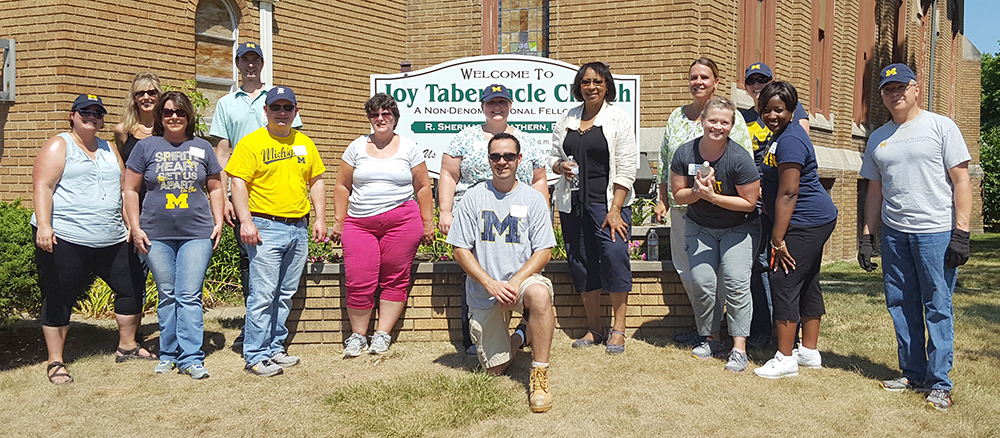
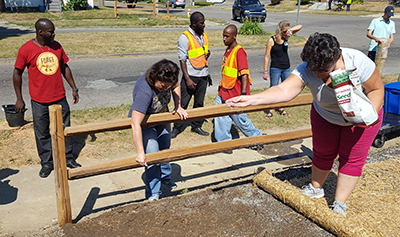
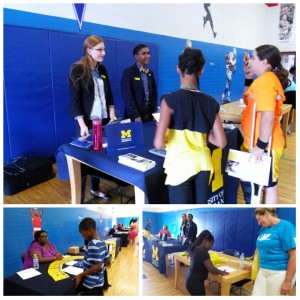 The University of Michigan-Flint Neff Center and the Boys and Girls Club of Greater Flint have a partnership that began with the
The University of Michigan-Flint Neff Center and the Boys and Girls Club of Greater Flint have a partnership that began with the 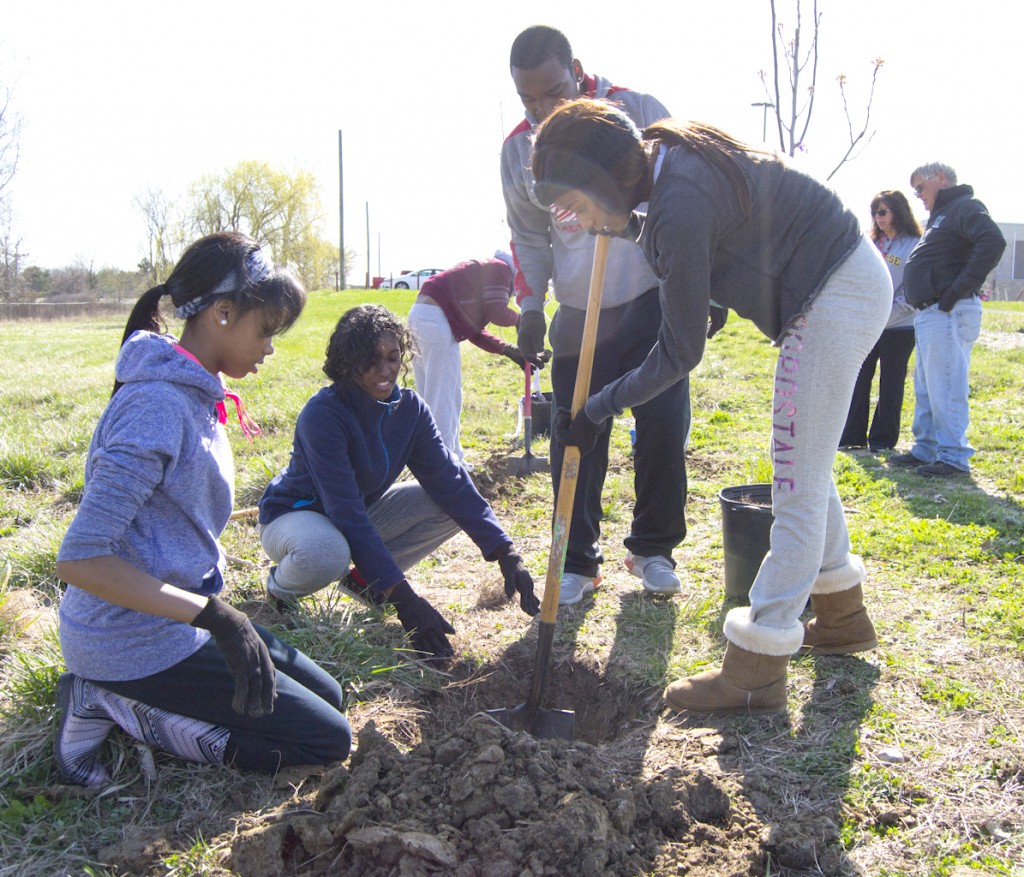 Given the opportunity to give back to their community, 109 of Beecher Middle High School students participated in Global Youth Service Day. The students enjoyed a day outside of their classrooms and getting their hands dirty. These students also worked alongside their peers, teachers, community members, College Positive Volunteers, college students, and UM-Flint staff. Students completed several projects such as planting sunflower seeds, fruit trees, berry bushes, spreading mulch and gravel, and picking up trash around the school.
Given the opportunity to give back to their community, 109 of Beecher Middle High School students participated in Global Youth Service Day. The students enjoyed a day outside of their classrooms and getting their hands dirty. These students also worked alongside their peers, teachers, community members, College Positive Volunteers, college students, and UM-Flint staff. Students completed several projects such as planting sunflower seeds, fruit trees, berry bushes, spreading mulch and gravel, and picking up trash around the school.